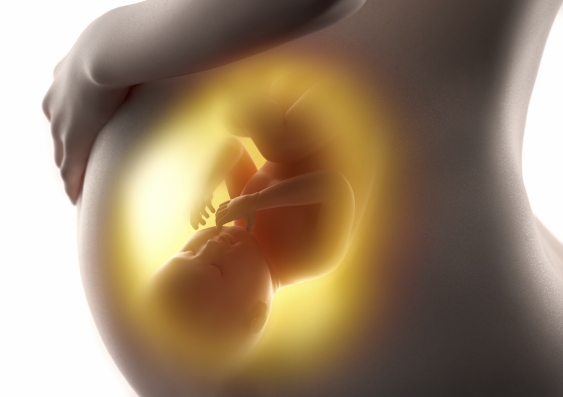OPINION: Stressed and tired, a pregnant mother forgets to wash her hands after blowing her two-year old daughter's nose. The daughter’s nasal mucus contains a virus which has now infected the mother and could travel across her placenta to her unborn baby. Without knowing, the mother has just unintentionally put her baby at risk of cytomegalovirus.
Human cytomegalovirus (CMV) is a common virus that is harmless for pregnant women, but is now the leading infectious cause of disability in newborns. The virus in the expectant mother's blood can infect the developing baby and may cause hearing loss and intellectual disability.
Yet, a number of international research studies have shown that the majority of pregnant women have not heard of CMV. This lack of awareness is also likely among expecting Mums in Australia.
How can you become infected with CMV?
CMV spreads via bodily fluids, particularly via the saliva, urine and stool of young children which may contain CMV for months after they were infected with the virus.
Scientists are still working to understand how CMV can infect the developing baby. What is clear though is practising good hygiene measures prevents infection.
Once infected, you may not have any symptoms and may not even know you are infected with CMV. However, some pregnant women may have a sore throat or fever.
How can you prevent contracting CMV?
The good news is that good hygiene measures during pregnancy- such as frequent hand washing - may prevent CMV infection.

Frequent hand washing may prevent CMV infection (Photo: Lucille Pine/Flickr).
A recent study, published in EBioMedicine followed 646 pregnant women to study whether frequent handwashing and changing certain habits can prevent CMV infection.
The researchers asked half the group to wash their hands after changing a diaper or wiping a child’s nose. They also asked them to avoid kissing a child on the mouth and to try to avoid sharing food, drinks and utensils with young children.
The study found that significantly fewer pregnant women contracted CMV when they followed these recommendations, meaning fewer babies with CMV infection were born to these expecting mothers.
Scientists are still working to understand how CMV can infect the developing baby. What is clear though is practising good hygiene measures prevents infection.

UNSW researcher Dr Wendy van Zuijlen
Is there a treatment for CMV during pregnancy
At the moment scientists are focusing on developing a therapy to prevent or treat CMV infection during pregnancy.
At least one large clinical study is investigating the effectiveness of antiviral drugs. Plus, several other clinical studies are underway to develop a CMV vaccine.
In the meantime, practising hygiene measures and avoiding risky behaviours remain important to prevent contracting CMV infection during pregnancy.
Where can you find more information?
If you are concerned about CMV, don’t hesitate to discuss this with your GP, obstetrician or midwife. They can provide further information and counselling.
Another option is to call MotherSafe, a free telephone service that provides counselling especially for pregnant women.
You can also find more information on the website of the congenital CMV Association Australia, which provides support to families who have been affected by CMV.
Dr Wendy van Zuijlen is a researcher at the Virology Research Laboratory in the School of Medical Sciences at UNSW.
This opinion piece was first published in Essential Baby.




